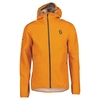The story of Mirtillo the deer

 1 / 5
1 / 5 Ermanno Salvaterra
Ermanno Salvaterra
Close to Trento there's a clinic specialised in injured animals, Casteller. The accident happened in the evening on Wednesday, 18 June 18th at Sant’Antonio di Mavignola. A farmer was mowing his meadow, the grass was high and he didn't see the deer and chopped off one of its hind legs. Shortly afterwards a hunter passed by, picked up the deer and took it to one of his friends at Pinzolo. They called Casteller but were told that the fawn would die before reaching them. A gamekeeper advised him to contact me.
I was at Arco climbing with my friend Andrea Sarchi. Just gone noon I received a phone call from a man from Pinzolo, unfortunately a hunter but nevertheless a good man. All my thoughts go to the deer, I no longer want to climb. I arrive home at around 17 and immediately went to see the deer. What I saw was poignant. The deer was in a wooden box, carpeted with grass, and the leg was on a shelf. We took it to the vet who frowned considerably. He told me to see whether the deer survived the night and, if so, to take it to him in the morning. That night was long and sad, but the little one proved a toughy.
At 10 we were back at the vets. I was worried because of the anesthesia, but it the end things worked out. We hoped. He carved out all the bone and joint, right down the to infected muscle, and prescribed six days of antibiotics. The next day the deer started eating, we used a milk bottle and slowly but surely it began to suckle the goat's milk, warmed to just the right temperature. Then for two days it ate little. We feared an infection. It was magnificent.
We keep it in our house, next to the sofa. We change the dressing 5 to 6 times a day. It pees a lot, and every 4 hours eats a lot. The last supper is at 2 in the morning, then it starts eating again early in the morning. It tried to get up but fell over, over and over again, but soon learned how to amble. Now it seems to be fine. A couple of times a day we let it out to join the goats, the rabbit, the alpaca. Outside it dashes around like a rocket. We love it dearly ... "
Ermanno Salvaterra
| www | |
| ermannosalvaterra.blogspot.it | |



 Copia link
Copia link
























